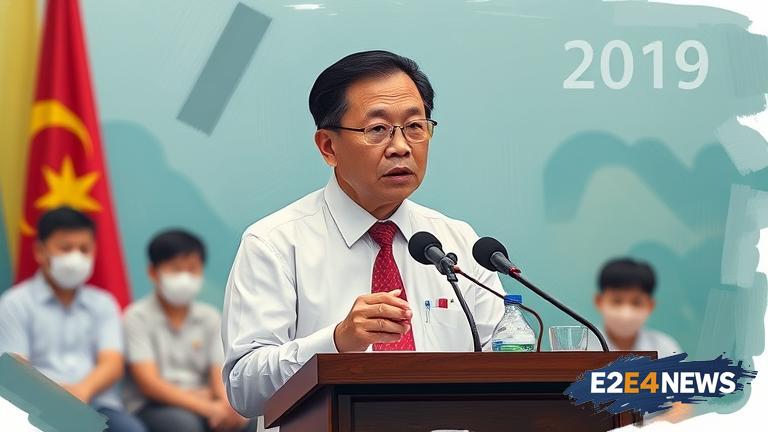Deputy Prime Minister of Vietnam has emphasized the importance of prioritizing post-typhoon recovery efforts at education and health facilities. The Deputy PM made this statement during a recent visit to affected areas, where he assessed the damage caused by the typhoon. He noted that the typhoon had caused significant damage to schools, hospitals, and other essential infrastructure, leaving many communities without access to basic services. The Deputy PM stressed that the government must act quickly to restore these facilities and ensure that children can return to school and patients can receive medical care. He also highlighted the need for urgent repairs to damaged roads and bridges, which are critical for the transportation of goods and people. The Deputy PM instructed local authorities to work closely with relevant agencies to assess the damage and develop plans for reconstruction. He also emphasized the importance of ensuring that all reconstruction efforts are carried out in a transparent and accountable manner. The government has allocated significant funds for post-typhoon recovery efforts, and the Deputy PM urged local authorities to use these funds effectively. He also called on international organizations and donors to provide support for Vietnam’s recovery efforts. The typhoon had a devastating impact on many communities, with thousands of homes destroyed or damaged, and many people left without access to basic necessities like food, water, and shelter. The government has responded quickly to the disaster, with search and rescue teams working to reach affected areas and provide assistance to those in need. However, much work remains to be done, and the Deputy PM’s statement highlights the importance of prioritizing the recovery efforts at education and health facilities. The Deputy PM’s visit to affected areas was an opportunity for him to see firsthand the damage caused by the typhoon and to meet with local officials and communities. He was accompanied by officials from the Ministry of Education and Training, the Ministry of Health, and other relevant agencies. The Deputy PM’s statement has been welcomed by local communities, who are eager to see the recovery efforts move forward. The government’s response to the typhoon has been widely praised, with many noting the speed and effectiveness of the relief efforts. However, there are still many challenges to be addressed, and the Deputy PM’s emphasis on prioritizing education and health facilities is seen as a critical step in the recovery process. The Deputy PM’s statement also highlights the importance of long-term planning and investment in disaster risk reduction and management. Vietnam is prone to natural disasters, and the government must take steps to reduce the risk of damage and loss of life. The Deputy PM’s visit and statement are seen as an important step in this process, and his emphasis on prioritizing education and health facilities is a critical part of the government’s overall strategy for post-typhoon recovery. The government has also announced plans to provide support to affected communities, including financial assistance and other forms of aid. The Deputy PM’s statement has been seen as a positive step forward, and many are hopeful that the recovery efforts will be successful. The international community has also been quick to respond to the disaster, with many countries and organizations offering assistance to Vietnam. The Deputy PM’s call for international support is seen as an important step in securing the resources needed for the recovery efforts. Overall, the Deputy PM’s statement highlights the importance of prioritizing post-typhoon recovery efforts at education and health facilities, and his emphasis on transparency, accountability, and long-term planning is seen as a critical step in the recovery process.
